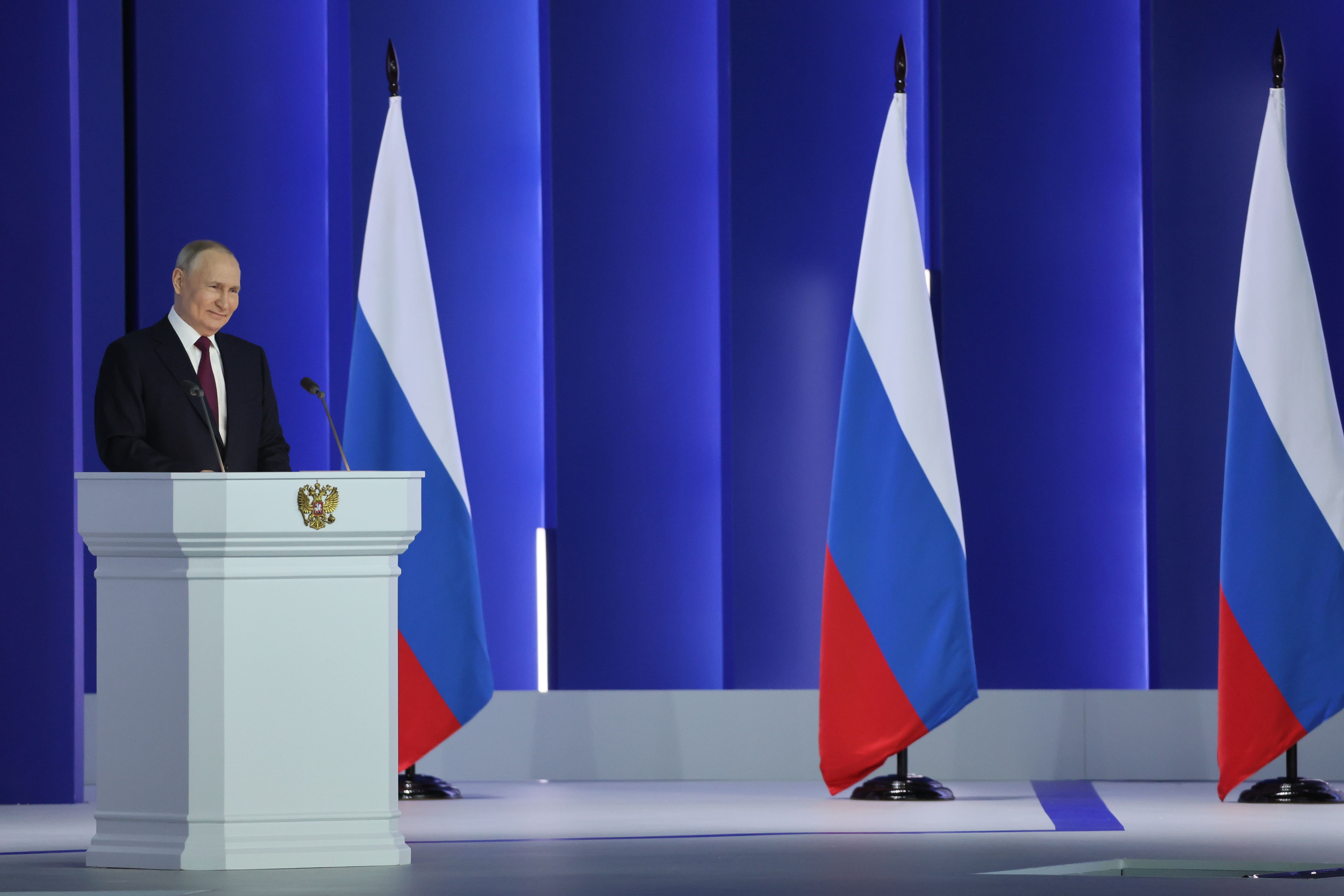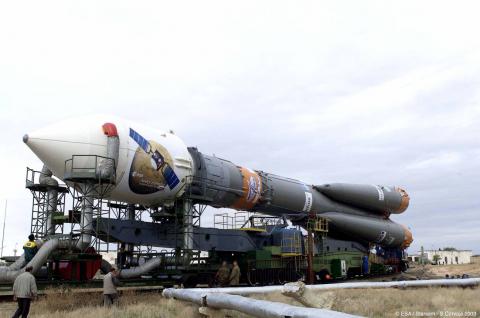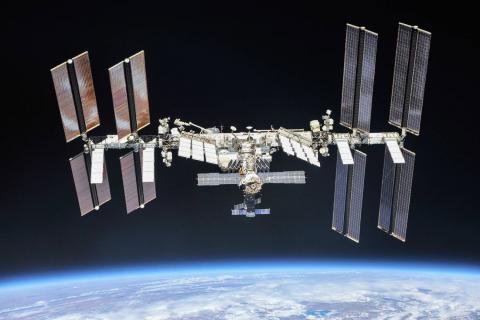Reaction: Putin announces that he is suspending Russia's participation in the nuclear disarmament treaty signed with the United States
On Tuesday, Russian President Vladimir Putin announced that he is suspending Russia's participation in the New START treaty, a bilateral agreement signed with the United States that has been in force since 2011 and that limits and controls the nuclear armament of both powers.

Vladimir Putin during his state of the nation address on Tuesday. EFE/EPA/SERGEY SAVASTYANOV/SPUTNIK/KREMLIN POOL MANDATORY CREDIT.
Daniel Ramjil - tratado nuclear Rusia EN
Daniel Rajmil
Lecturer in International Relations at the Faculty of Law and Political Science of the Universitat Oberta de Catalunya (UOC)
The New Strategic Arms Reduction Treaty (New START) is a strategic nuclear arms reduction treaty signed by the United States and Russia in 2010 that runs until 2026. The treaty has been the primary legally binding mechanism for limiting the strategic nuclear weapons capabilities of the world's two major nuclear powers. The treaty is primarily notable for:
- It limits the number of deployable nuclear warheads by the two countries to 1550.
- It restricts the number of long-range nuclear delivery vehicles to 700.
- Limits the number of deployed and non-deployed launchers and delivery vehicles to 800.
The treaty is also notable for including a comprehensive verification regime, including on-site inspections and routine data exchanges. Russia's suspension of the treaty is important for two reasons: first, as a limitation on the strategic nuclear arsenals of the world's two largest nuclear powers; and second, although the treaty does not cover non-strategic or tactical weapons, it is a confidence-building measure more necessary than ever in a period of heightened tension over the war in Ukraine.
Natividad Fernández - Putin desarme nuclear EN
Natividad Fernández Sola
Professor of International Law and International Relations at the University of Zaragoza
Legally, the suspension of the START III treaty announced by President Putin means a halt to the strategic arms reduction commitments agreed in 2010; however, it does not imply its termination, i.e. a resumption of its implementation would be possible.
While this is bad news for nuclear non-proliferation efforts, its significance must be put into perspective for two reasons. The first is that START binds only the United States and Russia, the major nuclear powers, and leaves out the rest, in particular China, whose nuclear capabilities are not known for certain. The second is that the US was on the verge of abandoning it during the Trump presidency because it does not want to be legally bound in the face of proliferation by Beijing, its strategic adversary.
Finally, compliance with its provisions today partially hides the need for both sides to eliminate some of their obsolete strategic weapons and replace them with new-generation ones that the US is already preparing; something that Russia cannot renounce in order to maintain nuclear parity.



